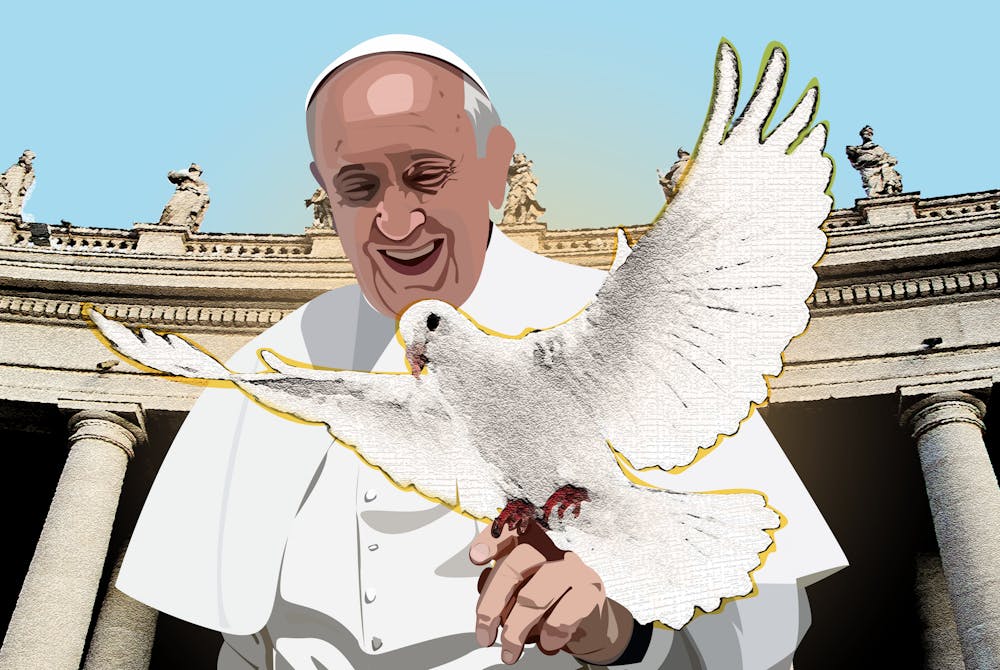These past few weeks, as I began planning an August trip throughout Europe, I ensured that I’d arrive in Rome on a Sunday morning early enough to see Pope Francis give a short blessing to the crowd on St. Peter’s Square. I’m not a practicing Catholic by any means, but I was baptized into the faith as a baby by my uncle, a Franciscan priest, in my family’s native Chile, a country where a simple majority of the population still belongs to the Catholic Church.
There is still a great part of me that feels drawn toward the swinging censers, the rich mythology, the promise of heaven. A greater part of me finds the Church’s stances on LGBTQ+ rights, abortion and the roles of women incompatible with my values.
The reason I wanted to attend the papal blessing in August was, therefore, not a vague aesthetic one. When I learned over a year ago that the Pope had been calling nightly with the tiny congregation of the only Catholic church left in Gaza, assuring them of his prayers and God’s watchfulness over them, I was deeply moved.
Over the course of his papacy, Francis proved himself devoted to the cause of the oppressed all over the world — Syrian migrants in Greece, economically exploited communities in Argentina, Palestinian Christians under constant bombardment or vulnerable to settler attacks. He helped Italian transgender women access medical care, declared ecocide a sin and condemned the failures of capitalism.
What does it mean to live in a world without Francis? A world increasingly hostile toward migrants, women, Palestinians, all manner of oppressed people whose lives do not fit in with the technocratic utopia envisioned by figureheads like Elon Musk or Donald Trump?
I am not sure yet, but I am sure at least that the world is now a little colder, a little harsher, a little less forgiving than it was a few days ago when Francis, weak and fresh from his hospital bed, called out for a ceasefire in Gaza from his wheelchair. It feels as though all the powerful now, especially in the United States and within Christianity, are cruel and hardhearted and unforgiving. It has been a comfort to me to read the words of the Pope during these past few years; always he was loving, always he kept his mind on the disenfranchised.
There are many who have said that the Pope did not go far enough in welcoming minorities to the Church; in some ways they are right. I disagree fundamentally with his hardline stance on abortion, his refusal to bless same-sex unions, his rejection of proposals to allow women to join holy orders. I consider some of these positions abhorrent.
And yet never in his expression of them did I feel that I was encountering anything like the ideology of hatred spread by the far right political movements gaining ground in the world. In the 2024 presidential election, he refused to endorse Kamala Harris due to her support for abortion rights; he also rejected an endorsement of Donald Trump, citing his cruelty towards migrants.
“Both,” he said, “are against life.” Though I find his position unjust, I respect his moral consistency; I see nothing like it in the political leaders of our country.



